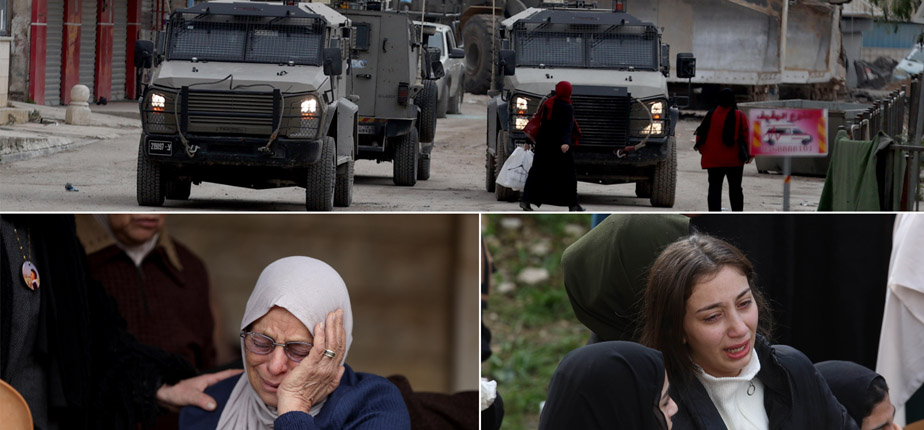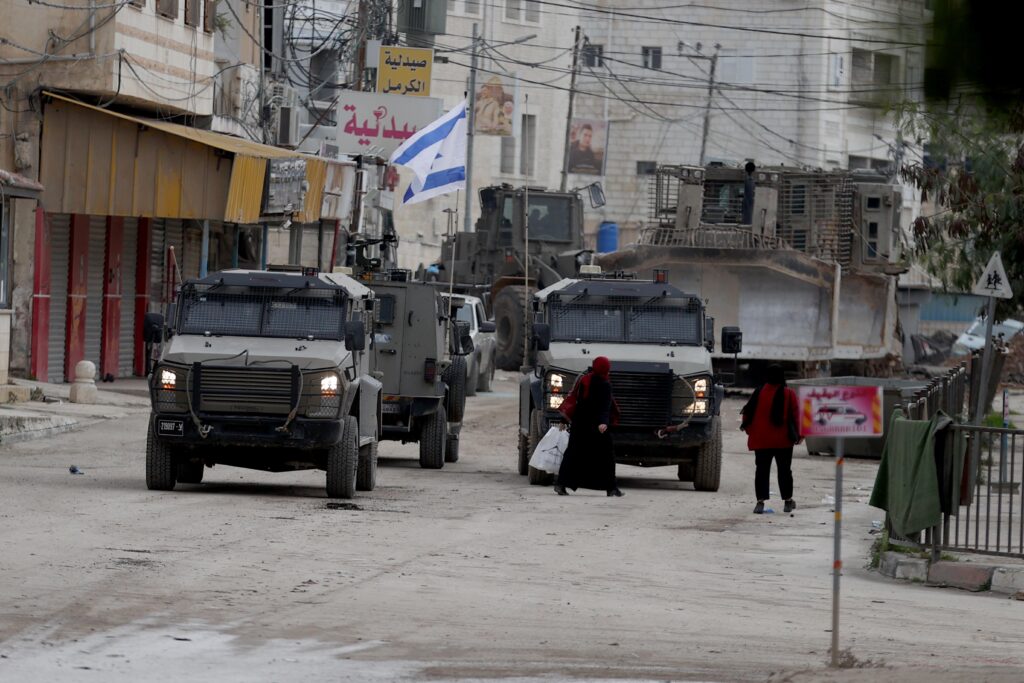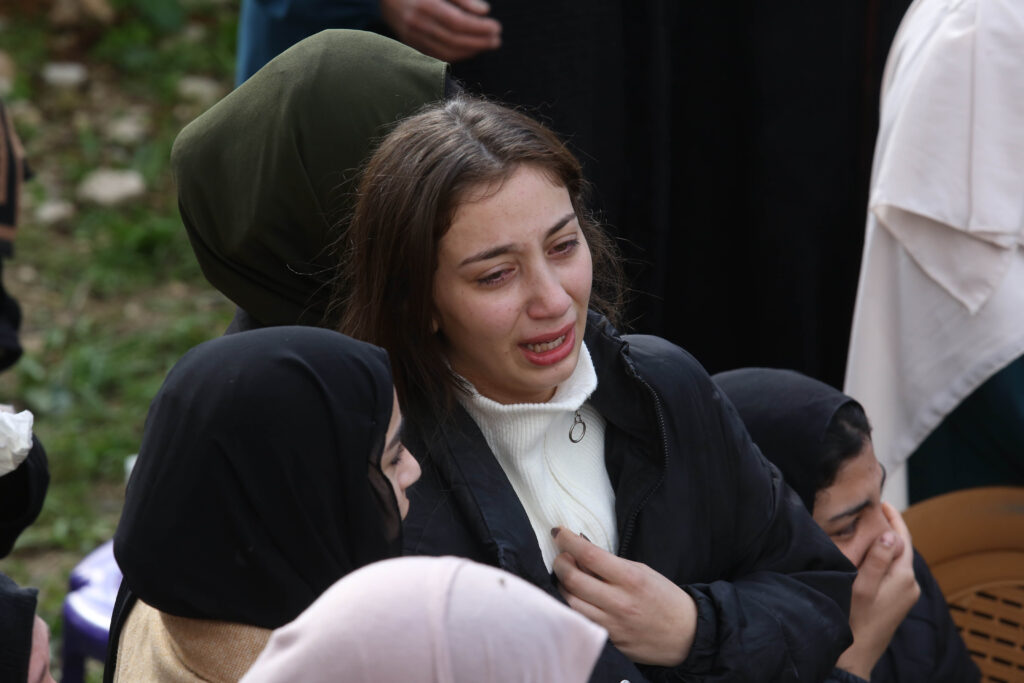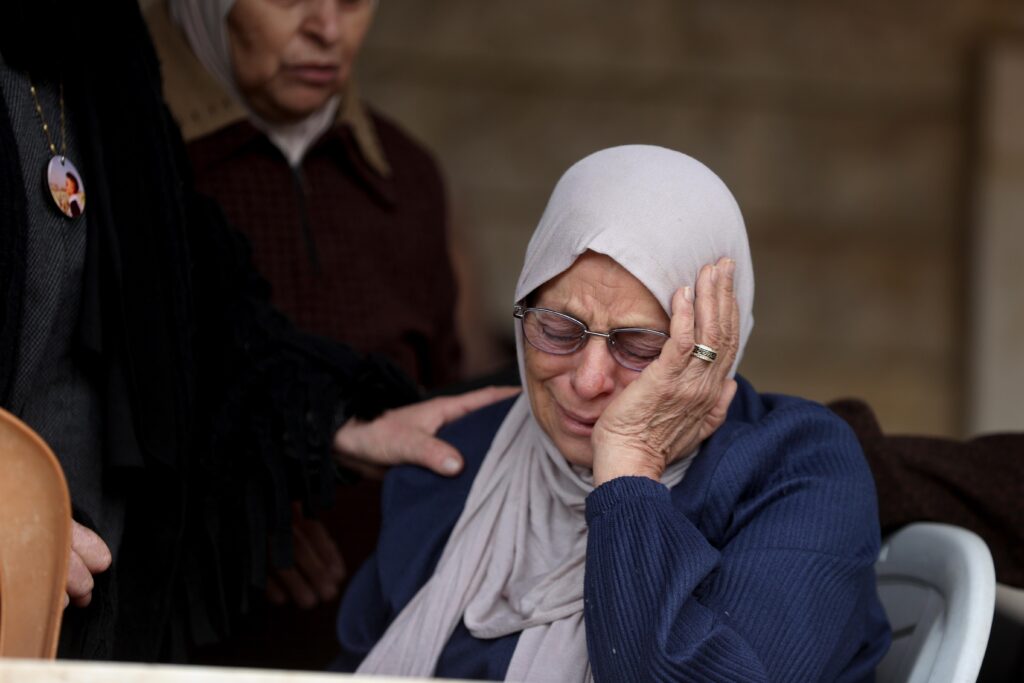
Nadine Osman
Hours after President Donald Trump lifted US sanctions on far-right Israeli settler groups—organizations internationally condemned for violating international law and fueling violence against Palestinians—Israel launched a sweeping military offensive in the occupied West Bank.
Operation Iron Wall Targets Jenin, Leaving Palestinians Dead and Injured

Israeli army continues its attacks in West Bank city of Jenin on the 2nd day, on January 22, 2025. The Israeli army continued its attacks on the city of Jenin and the refugee camp in the north of the West Bank, which it launched yesterday. Israeli army drones carried out reconnaissance flights in the region, where armed clashes and explosions were heard from time to time. (Credit: Issam Rimawi/AA)
Dubbed Operation Iron Wall, the assault targeted the northern city of Jenin, with Israeli forces storming the area in what Prime Minister Benjamin Netanyahu called a decisive campaign to “defeat terrorism.” According to health officials, the operation left at least ten Palestinians dead and dozens injured, exacerbating the already dire humanitarian crisis.
Escalating Violence: Settler Attacks and Clashes with Soldiers
This escalation came on the heels of a violent surge on January 20, the day of Trump’s inauguration. Suspected Jewish settlers attacked Palestinian villages, torching vehicles and properties. Israel’s military reported that masked settlers assaulted a Palestinian village and even clashed with Israeli soldiers, further inflaming tensions.

Mourners gather at the funeral of 15-year-old Palestinian Ahmed Jazr, who was killed in an Israeli attack, in Nablus, West Bank, on January 20, 2025. (Credit: Nedal Eshtayah/AA)
The Palestinian Authority swiftly denounced Trump’s decision to lift sanctions on extremist settler groups, warning that it would embolden further violence. The Palestinian Ministry of Foreign Affairs declared, “Lifting sanctions on extremist settlers encourages them to commit more crimes against our people,” referencing recent attacks that injured 21 Palestinians.
The West Bank Crisis: Increasing Settler Attacks and Deepening Humanitarian Issues
The violence in the West Bank has escalated dramatically in recent months, with Palestinian communities increasingly reporting settler attacks on homes, vehicles, and farmland. These incidents are deepening the humanitarian crisis and fuelling fears of an even more dangerous conflict.
Trump’s Policy Shift: Reversing Executive Order 14115
On January 21, just one day after the inauguration, the White House announced the rollback of Executive Order 14115, which had been introduced by the Biden Administration to sanction individuals and entities destabilizing peace in the West Bank. The order had frozen their U.S. assets and barred Americans from engaging with them. Trump’s decision marked a significant shift in U.S. policy toward the region, raising concerns about the future of peace efforts.
Settler leaders wasted no time celebrating Trump’s decision to revoke sanctions, which were initially targeting far-right settler groups. The sanctions were later expanded to include other Israelis deemed violent or extremist.
Smotrich’s Vision for 2025: Strengthening Jewish Settlements
Finance Minister and staunch settler advocate Bezalel Smotrich quickly responded to Trump’s decision to revoke sanctions, calling it a “just decision” and condemning the sanctions as “severe and blatant foreign intervention.” On social media platform X, Smotrich lauded Trump for his “unwavering and uncompromising support for the state of Israel.”
In the wake of Trump’s victory in November, Smotrich declared at a meeting of the Religious Zionist Party (RZP), “The time is now” for Israel to take decisive action in the West Bank. He called for strengthening Jewish settlements to reinforce Israel’s territorial claims. On X, he proclaimed 2025 as “the year of sovereignty in Judea and Samaria,” referring to the West Bank by its biblical names. Smotrich has also ordered preparations for annexing the occupied territory, a move that is expected to gain significant momentum with Trump’s presidency.
Settler Violence: A Longstanding Issue Intensifies
Human rights organizations, such as Yesh Din, have documented disturbing footage of settler violence. On January 20, for example, videos emerged showing attacks on Palestinian property, including fires set to homes and vehicles in the West Bank. The group reported that in Sinjil, northeast of Ramallah, settlers set two homes on fire and torched at least four cars.

Palestinians attend the funeral ceremony in the town of Burqin for Ahmad Shayeb, a Palestinian youth who lost his life in Israeli forces firing during a raid in Jenin, West Bank on January 22. (Credit: Issam Rimawi/AA)
In In 024, the United Nations Office for the Coordination of Humanitarian Affairs (OCHA) recorded over 1,400 incidents of settler violence in the occupied West Bank and East Jerusalem. These attacks included physical assaults, arson, community raids, and the destruction of fruit trees, causing significant injury, death, and displacement.
The Human Toll: 800 Palestinians Killed in the West Bank Since Gaza Conflict Began
Since the beginning of the Gaza conflict, Israeli forces have killed at least 800 Palestinians in the West Bank, with around 6,500 injured. The ongoing destruction of homes, agricultural land, and other critical resources has deepened the crisis, leaving many Palestinians without means of subsistence.
As tensions rise, Israel’s Western allies face increasing pressure to respond. With Trump’s decision to lift sanctions and bolster the far-right Israeli agenda, the question remains whether the international community can intervene meaningfully to address the violence and the ongoing displacement of Palestinians. The world’s attention may be divided, but the crisis in the West Bank continues to escalate, and with it, the prospects for peace seem ever more distant.
US has committed a staggering $22 billion to support Israel’s military operations since October 2023
Human Rights Watch accuses Israel of “acts of genocide” in Gaza amid water crises
Norway requests FIFA investigate Israel following the World Cup qualifier draw